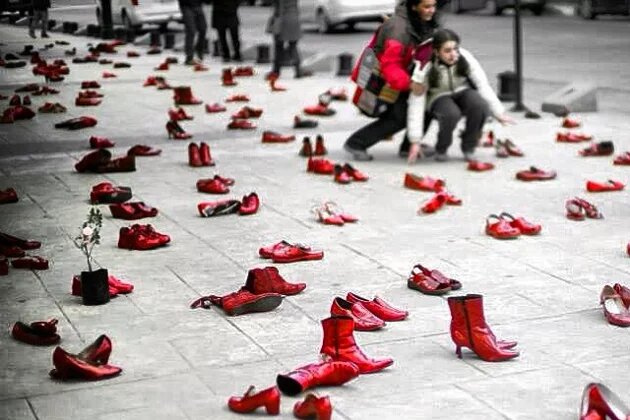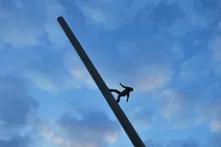
Mikael Gustafsson, Chairman of the Committee on Women's Rights and Gender equality at the European Parliament (FEMM) talks with Caroline Ausserer about past highlights and future challenges.
Caroline Ausserer: What were - in your view - the highlights of the last five years' work of the Committee on Women's Rights and Gender Equality in the European Parliament (FEMM)? What were the major successes and difficulties?
Mikael Gustafsson: During the last five years we have addressed the issue of violence against women all over our work. We wanted to convince the Commission to bring forward a legislative proposal. We also adopted a report in 2011 on this topic; and at the Strasbourg session in February 2014 we adopted a new report that is going to force the Commission to say how they are going to deal with this issue.
This is a big highlight in the work of the Committee and of the European Parliament.
But there is also a negative „highlight“: over the last 1-2 years there is a big struggle against the women's right to the own body. With the rejection of the Estrela report on sexual and reproductive health and rights (called so after the Portuguese social-democrat MEP Edite Estrela) you can see there is a very strong movement in the European Parliament working against that women should have the right to decide over their own body. There are two streams, one positive that is raising awareness on gender equality and violence against women and another stream that is more connected to the crisis by itself. The crisis affects this policy, you can see it in the countries, especially the ones affected more by the economic and financial crisis. It affects the whole society and especially women's rights and gender equality. It goes hand in hand with racism, homophobia and women hate. These three things are bond to each other.
Could you please explain this?
G.M.: We know about the racist and nationalistic parties rising in Greece and other countries, which are gaining a lot of support. But their movement and point of view goes very much hand in hand with homophobia and also women's hate. These three movements are against gender equality, against homosexual people and against foreign people arriving to the country. They are “a nutrition” to each other. It is like going back to a very conservative point of view, also in regard of the women's role in society. I am of course painting a very black and white picture, but it is just for analysis reasons.
What could be done in order to decrease the influence of these movements?
M.G.: In the committee we do analyze the situation, e.g. we have a report in the committee about the impact of the crisis on women's rights. But when it comes to how to solve the problem we do not exactly have the same point of view. In my capacity as a Chair, I can say that there are many things you can do, but in this report, for example, we agree that when you have a crisis and you use some kind of austerity measures, then you also need a gender perspective in these austerity measures. Because, for example, if you cut down different kind of welfare state very much, that means that women are almost forced to go back to unpaid work. If you don't have childcare centers or institutions for elderly people, somebody has to take care of elderly and children. And „somebody“ seems always to be a woman in this context. If you have these welfare institutions, it does not mean that you gain automatically gender equality. But: they are a basic platform to create gender equality. Because it means that women can go out to the labour market, they can get economically independent and if you are economic independent, you are free to choose over your life. Therefore, if you take these institutions away it has very negative influences and is against the empowerment of women. For example, the employment rate was always rising until 2008, after then it has stabilized. It is still at 62% and it was the same in 2008 (comparison for men 74%). Before 2008 it was always increasing, with the crisis the figures remain the same.
So we can see a direct impact of the crisis?
M.G.: Exactly. This indicator is so important when it comes to empowerment of women. That is a key issue, of course it is not the only important factor.
Does the European Commission agree upon this, do they put a gender perspective in the austerity measures?
M.G.: No. They have a very technical point of view when it comes to this issue, they are more focussed on figures and not on the impact. That was what the European Parliament and the FEMM Committee criticizes in the report I mentioned. The European Commission should take that much more into consideration and do gender budgeting.
Why is the European Commission not integrating it? Your example is about figures.
M.G.: This is a common problem in the European Union. It is not that we do not have good words and wording when it comes to gender equality. In the Lisbon Treaty, for example, article 8 says: „Every policy decision should be affected by gender perspective“. That is very very good. The problem is how to implement that without allocating resources to that. So the implementation and allocation is the problem, not these nice words. It is very easy to say that we should have gender equality, but then you have to live up to it, you have to take that into consideration, you have the gender mainstreaming approach, you have to allocate resources so that you can achieve gender equality. The words in the Lisbon Treaty are very good and also other documents adopted by the Council and the Commission they all say it is important. There is nothing wrong with the words. The problem is the implementation.
What will be the challenges for the next five years? Which next steps are awaiting? What are the future goals and objectives?
M.G.: We cannot have a plan without being reelected. But many of these issues, which I have already mentioned, will be big issues also in the future. We are going to talk about austerity measures, about women's rights over their own body (eg. abortion and contraception) and also about violence against women. I am pretty sure that the new committee will work as hard as we did to have the Commission put forward a legislative proposal when it comes to minimal standard for all the 28 Member States. I imagine that the topics will be quite the same. But it ll depends on the outcome of the elections. It depends on which party and political groups are taking part and how much influence they will have. Talking as a MEP now, I am very worried about nationalistic and racist parties, which are gaining a lot of support now. I am worried about how they affect the debate and the atmosphere in the Parliament. But you never know, if, for example, all the other parties build up a stable alliance – like the alliance we now have in the FEMM Committee between four groups: the liberals, the social-democrats, the greens and the left, we now have a majority in the FEMM committee. If they stick to this, these rough far right extremist parties can also not have any influence. But you never know. They were one of the key reason that made the Estrela report to be rejected.
Is there any possibility that the report will be taken up again?
M.G.: This report is finished, but we can address it in a new report. The issue will be raised again. It has been raised before this report in many other amendments in different reports. Every time during the five years all the amendments were adopted. It was just when we put it together in one report there was a huge resistance against it. The final vote was very close: we lost it with 7 votes only. (The final vote was: 334 votes in favour, 327 against and 35 abstentions.)
If you look into the future, what would be your wish?
M.G.: My wish is that we take a strong step to fight violence against women. We have improved in the 28 Member States, but we need to put it as priority on the agendas. Furthermore the debate about the women's rights over their body needs to be made in a progressive way. This is a human rights issue! And it is extremely important in an economic sense; we also need a working welfare system. Then women can get access to the labour market, which gives women the independence to chose what to do with their lives. All this can empower women, which at the end is good for the society as a whole.
Thank you for your time!
